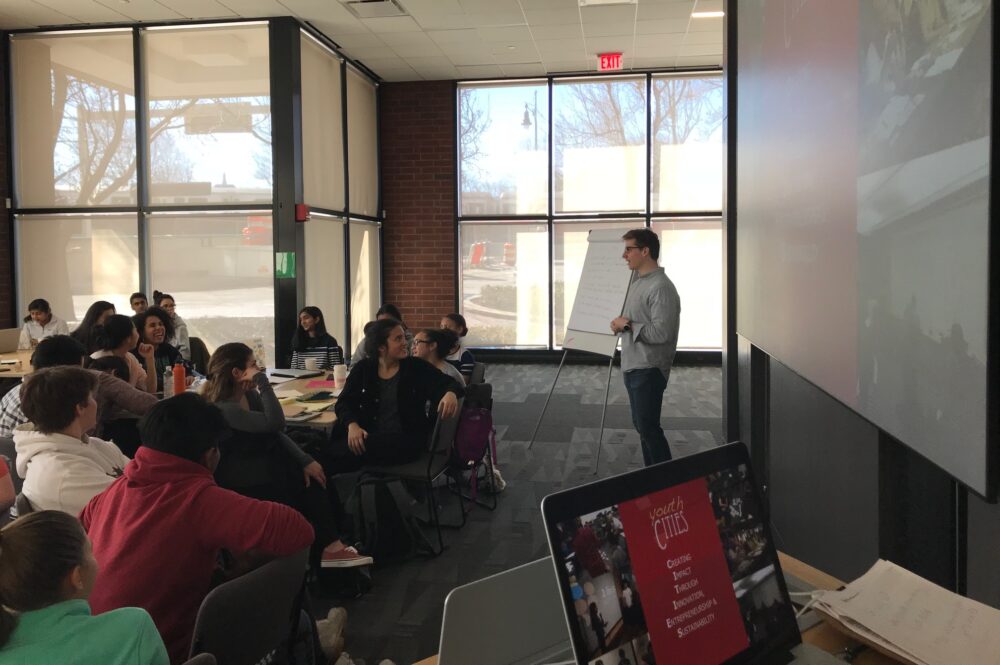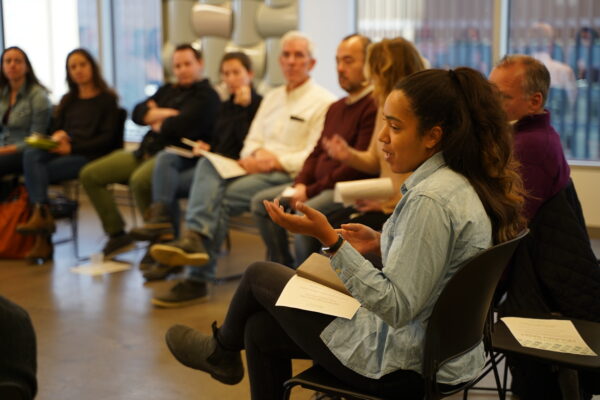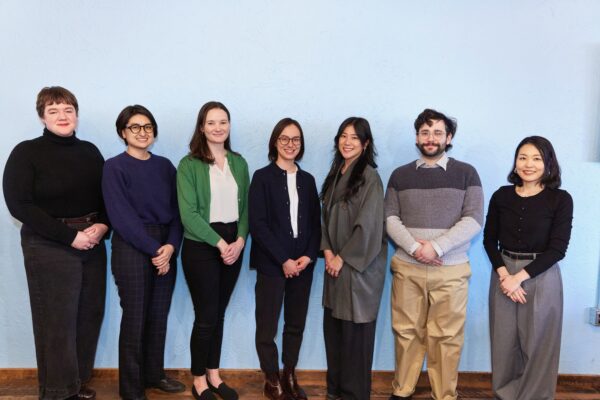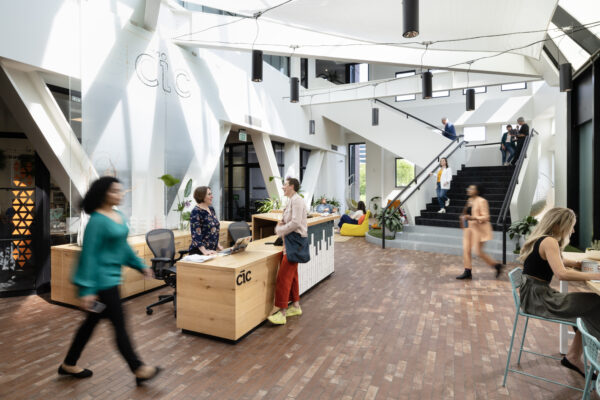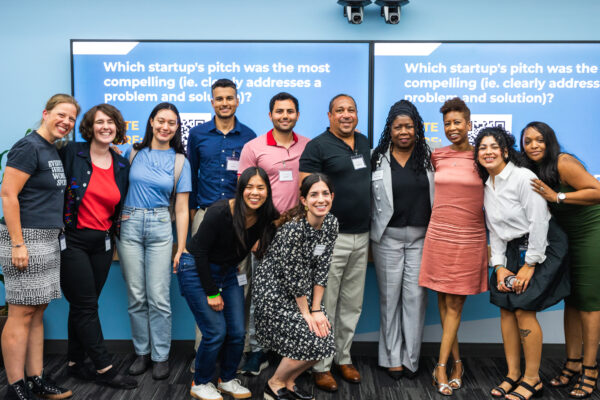It’s summer vacation and you’re looking to make some money, so you start a lemonade stand. Upon opening, you discover that you don’t have cups. Do you: a) close your business for the day or b) find a solution to stay open without cups?
When entrepreneurship educator Vicky Wu Davis discussed the hypothetical problem with her seven-year-old son, he had an idea: “Use bowls!”
Wu Davis is the Executive Director and Founder of Youth CITIES, whose acronym stands for “creating impact through innovation, entrepreneurship, and sustainability.” The Boston-based nonprofit teaches adolescents and teens how to be entrepreneurs. But that doesn’t mean Wu Davis is trying to churn out future CEOs or VCs. Rather, she teaches entrepreneurialism as a creative, problem-solving mindset that can be applied in any job, industry, or situation.
When life gives you lemons? Start a lemonade stand. When your lemonade stand doesn’t have cups? Use bowls.
“Pivot, shift — all these buzzwords boil down to how adaptable you are to your circumstances,” says Wu Davis. “Are you rigid? Or if you get knocked down, can you figure out another way?”
After working for many years in the video game industry and starting a few ventures of her own, Wu Davis launched Youth CITIES as a pet project nearly a decade ago. Now it’s a full-time job, with Youth CITIES running bootcamps every spring and fall, as well as mini-hackathons every month at CIC.
Students come from public, private, and charter schools all over Massachusetts — sometimes even from bordering states. In addition to geographical diversity, Wu Davis strives for gender balance among participants, and at least half of her students come from financially constrained communities.
“I’m a firm believer that neither gender nor zip code nor any other identifying factor should define someone’s potential,” she says. “It certainly adds to a person’s unique value proposition, how they’re going to view a problem, and how they’re going to solve it, but it shouldn’t define potential.”
Empowering youth of traditionally marginalized or minority identities is a key motivator behind Youth CITIES. But there’s a reason Wu Davis doesn’t run, say, girls-only bootcamps. “Diversity is a two-sided coin,” she says. “In order for women to be fully empowered, men also need to know what women are capable of. They need to see it.”
As far as Wu Davis is concerned, young people learning about entrepreneurship for the first time are real entrepreneurs, and she treats them as such. Program participants attend events alongside working adults at CIC and LabCentral, and they pitch in front of established startup founders at Venture Café. Through this immersion, students see diverse role models from a young age and get to build social capital within networks they might not otherwise have access to.
There are long term implications to this. “People carry implicit biases, and there are also times when hiring and collaboration choices are based less on bias and more on, simply, who your contacts are,” says Wu Davis. “When putting your money and name on the line, you’re often going to go with people who you’ve worked with and trust. If your network is wider and more diverse, the pool of who you can choose to work with is automatically going to be more diverse.”
Mapping one’s network has become a standard exercise (Wu Davis calls it “Circle of Resources”) in Youth CITIES curricula. Imagine a dart board with concentric rings: the bullseye represents your personal skills and resources, and each circle represents a level of contacts and their respective skills and resources. The further you go from the center, the more distant your connection to a person. Whereas people in the inner rings are easier to approach and will likely offer more support for less in return, you’ll need either a compelling story or enough money to access the outer rings.
Activities like this help kids to identify resources they didn’t realize were available to them. After all, the entrepreneurial mindset is about recognizing what you do have, not what you wish you had, says Wu Davis. “I teach students how to look at limited resources or unexpected obstacles not as roadblocks but instead as design constraints. It just requires a little more creativity in your solutions.”
Students flex those muscles through hands-on projects, such as the most recent bootcamp’s winning venture, an app called Ahead of the Curve. Each of the app’s features were envisioned as a solution to the creator’s firsthand challenges of wearing a scoliosis brace. Other students have filed provisional patents or started entrepreneurship clubs in their schools.
Meanwhile, the program’s inaugural year winner came back as the closing keynote and a competition judge years later. “I remember Dougan [Sherwood, Co-Founder of CIC St. Louis] saying that Youth CITIES is like the baseball farm system, where you might play for the PawSox before you play for the Red Sox,” Wu Davis recalls. “We take young, up-and-coming entrepreneurs, cultivate their talents, and then launch them into the local entrepreneurial ecosystem.”
